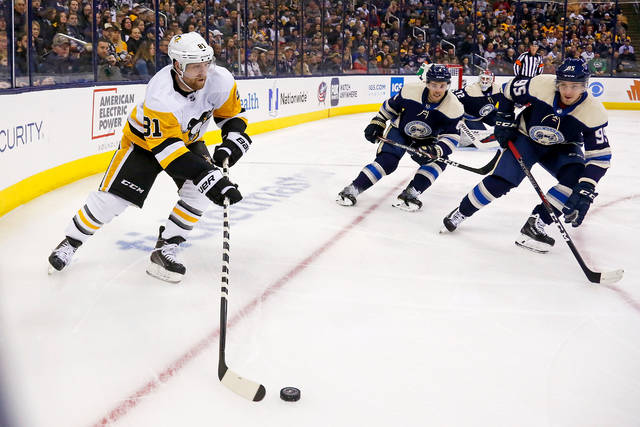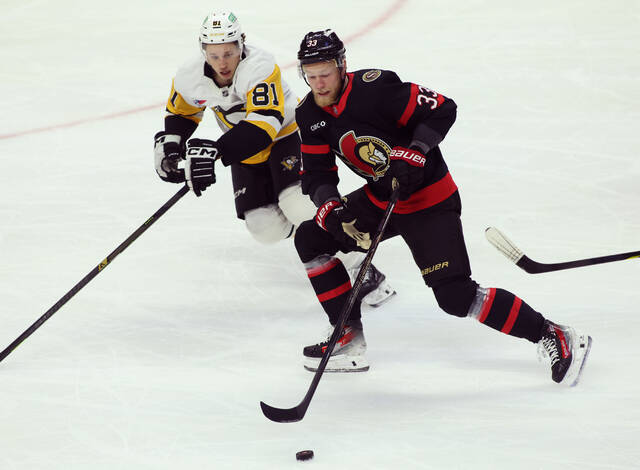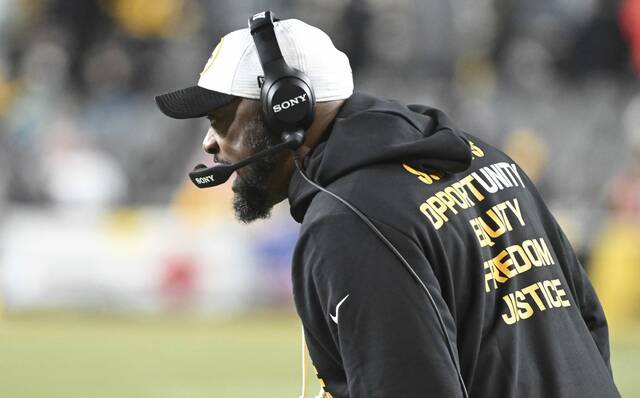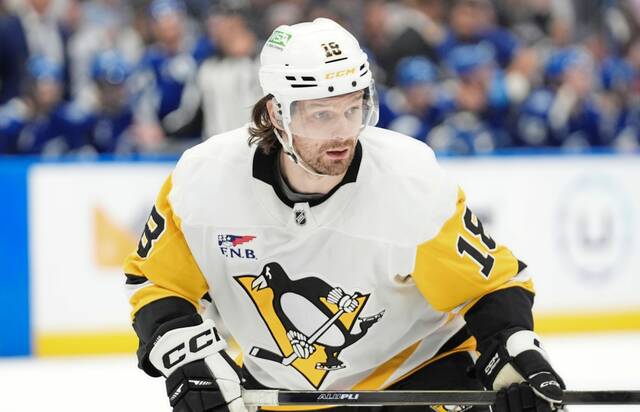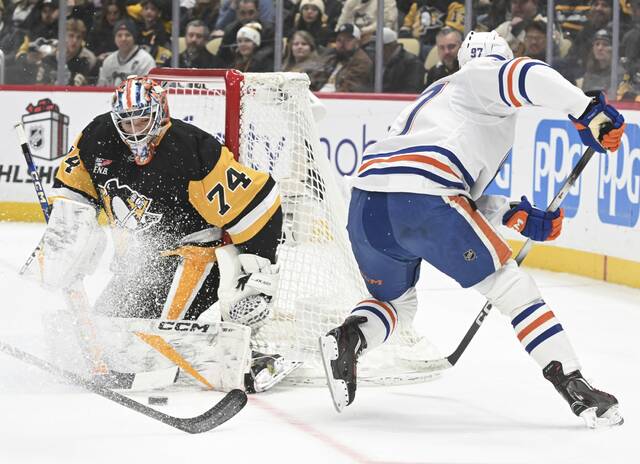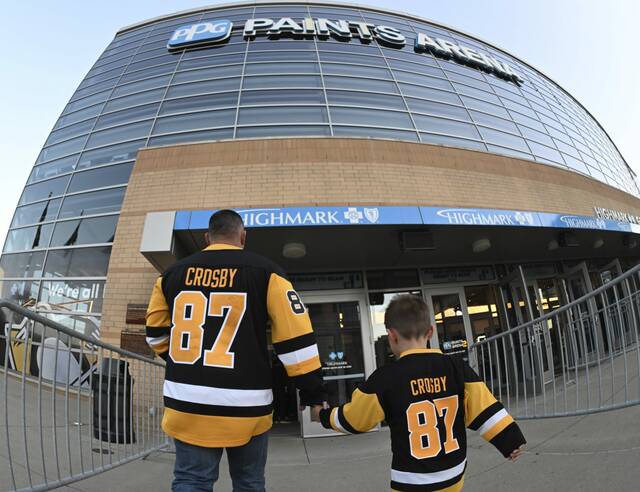If the Pittsburgh Penguins had been able to trade winger Phil Kessel to the Minnesota Wild as general manager Jim Rutherford intended last month, it would have revealed the message the team was sending about its plans to bounce back from a disappointing finish to last season.
More hunger and hustle. Less defensive indifference and casualness with the puck.
Trading Kessel would show being harder to play against, not scoring more goals, was how the team planned to chart its championship course once again.
The deal, of course, was waved off when Kessel exercised his no-trade clause. Rutherford subsequently said he’s no longer looking to move Kessel, and while many logically dismissed those comments as posturing, there’s a better than slim chance the Penguins start next season with No. 81 on the ice, just like he has been for the last 393 games, counting the regular season and playoffs.
It stands to reason, of course, the Penguins will be looking to make the same type of improvements even if they don’t trade Kessel. Can they achieve those goals with the popular 31-year-old still in the fold? If so, how?
• Trading Kessel would work to alleviate one of Rutherford’s greatest concerns about the current Penguins roster, and it’s a concern he first voiced back in November when he traded Carl Hagelin to the Los Angeles Kings, that the team had become stale and complacent.
Shipping Hagelin did nothing to shake off the perceived malaise, but perhaps cutting bait on a bigger fish like Kessel would have the desired effect.
If Kessel isn’t traded, the Penguins will have to find a similar spark from within.
“It’s still a concern,” Rutherford said. “It’s still a concern. You get to the point where you have success, and sometimes you just get too content. If we don’t make changes, then the group here has to change that, get that fight back to be able to compete the way we did in the playoffs when we were successful. And they’re able to do it.”
• Looking at things a little more pragmatically, trading Kessel would have removed a defensive liability from the Penguins lineup.
Last year, only two forwards on the team were on the ice for more even-strength goals against per 60 minutes, and one of them was Daniel Sprong. That’s not good defensive company to keep.
If the Penguins want to become stingier without trading Kessel, they’ll need to ask him to perform like he did in his first two seasons with the team. From 2015-17, Kessel was on the ice for fewer goals against per 60 minutes than Sidney Crosby and Matt Cullen. No reason he couldn’t revert to that form.
• While asking the locker room to play with more fire and Kessel to be more responsible aren’t unreasonable requests, it hardly seems like enough to affect real change in the team’s overall performance.
They are going to need a better plan than, ‘Try harder.” Personnel changes probably will be required.
Trading Olli Maatta to Chicago for Dominik Kahun and a fifth-round draft pick was simple enough. The Penguins had the depth on defense to withstand the loss, and the deal saved them $3 million in cap space.
Other potential trade waters will be more difficult to navigate.
There are plenty of problems with the idea of trading Evgeni Malkin or Kris Letang, not the least of which being they’ll leave massive Malkin- or Letang-sized holes in the roster. Plus, those moves would be a little more drastic than the “retooling” that Rutherford has promised.
Rutherford said he considered moving Jack Johnson instead of Maatta, but it’s safe to assume finding a taker for the 32-year-old defenseman’s contract wouldn’t be simple.
Bryan Rust could be moved, but he’s got the kind of speed and versatility the Penguins need more of, not less.
The Penguins probably could overcome the loss of Nick Bjugstad fairly well, but he’s not stale. He just got to town in February.
• Add it all up and throw in salary-cap concerns, and the conclusion becomes pretty obvious.
The reason trading Kessel was the first thing on Rutherford’s to-do list this summer is because it’s the cleanest, easiest way for the Penguins to achieve the offseason goals they’ve set for themselves.
For those same reasons, it will come as no surprise if he revisits the idea and tries to take another crack at getting a Kessel deal done at the NHL draft this weekend in Vancouver.


